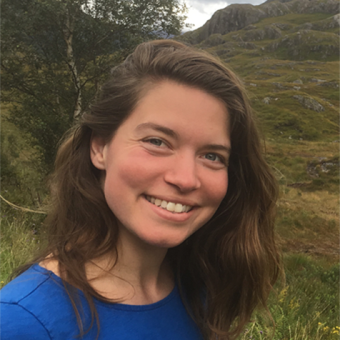
UCSB Materials will welcome Assistant Professor Angela Pitenis on November 1, 2018. Prof. Pitenis’ research begins at the intersection of materials science, physics, chemistry, and biology, and aims to understand interfacial phenomena and energy-dissipation at the interfaces of soft materials. Her research will focus on friction, adhesion, wear, and deformation of complex surfaces -from living cells to polymer nanocomposites. These interfacial interactions transpire over multiple length- and time-scales, often in extreme environments and within buried interfaces. In Prof. Pitenis’ group, a wide array of in situ experimental techniques (e.g., microscopy, spectroscopy, and interferometry) are used to access these interfaces and gain mechanistic insights into dynamically evolving material systems. The immediate impacts of these research efforts are in healthcare, energy, sustainability, and engineering design.
Prof. Pitenis is looking forward to working with curiosity-driven, enthusiastic, and collaborative students. In her laboratory, students will develop a broad range of experimental skills, from gel synthesis to cell culture to instrumentation design and manufacturing, and gain expertise in theoretical modeling and materials characterization techniques. Prof. Pitenis’ group will benefit from the multidisciplinary research environment of the Materials Department and will include collaborations with groups in the Molecular, Cellular & Developmental Biology (MCDB), Physics, Chemical Engineering, and Mechanical Engineering departments.
Prof. Pitenis is coming to UCSB from the University of Florida, where she currently is a postdoctoral scholar, and where she earned her PhD, MS, and BS in mechanical engineering. Her Ph.D. studies revealed the role of mechanochemistry on wear of fluoropolymers at interfaces. In her post-doctoral studies, she studied the properties of interfaces of hydrogels with their mechanical interactions with biological cells.
Welcome, Prof. Pitenis!



